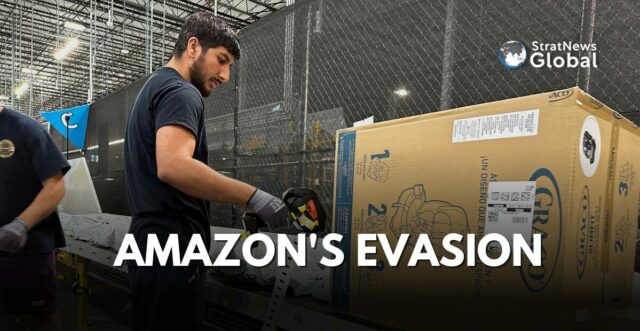Amazon has become the first company to sidestep a global standard for verifying carbon offsets, a standard developed by a non-profit largely funded by its founder and executive chair, Jeff Bezos. Amazon is now backing a new standard, aiming to overcome the limited supply of quality-labeled offsets, crucial for its goal of achieving net-zero greenhouse-gas emissions by 2040.
Developing a New Standard
Amazon has completed work on Abacus, a framework for verifying the quality of carbon offsets in reforestation and agroforestry. This new standard was developed with carbon registry Verra as an alternative to the standard developed by the Integrity Council for the Voluntary Carbon Market (ICVCM), the largest grouping of private sector and environmental groups dedicated to validating carbon offsets. Verra announced the partnership with Amazon and the Abacus working group in 2022.
Criticisms and Concerns
Critics worry that Amazon’s move could lead to market confusion and a compromise in carbon offset standards. The voluntary carbon offset market, valued at $2 billion, remains small due to concerns over the actual impact of underlying projects.
Pedro Martins Barata, co-chair of ICVCM’s panel of experts, expressed concern over the development of an alternative standard, hoping Abacus would eventually integrate with ICVCM to avoid market confusion. Kelley Kizzier, director of corporate action and markets at Bezos Earth Fund and a member of ICVCM’s board, suggested that Abacus is complementary rather than competitive to ICVCM, focusing on generating high-integrity offsets.
Support from Major Companies
Companies like Alphabet, Meta, Microsoft, and Salesforce have shown support for the Abacus standard, planning to buy up to 20 million metric tons of Abacus-certified credits.
Amazon’s Commitment to Carbon Neutrality
Amazon generated 71.3 million tons of carbon dioxide equivalent emissions in 2022, with 54.98 million tons from its supply chain. Despite the new standard, Amazon’s head of carbon neutralization, Jamey Mulligan, stated that the company would not use carbon credits to replace efforts to decarbonise its business. Amazon is currently reviewing over 70 proposals from developers, aiming to restore tens of thousands of hectares of degraded land.
Mulligan emphasized the need for a more ambitious standard, ensuring that every credit investment has a real, conservatively quantified, and verified impact on emissions. Amazon aims to become one of the biggest carbon-credit buyers, but it will take two to three years for projects to qualify for the Abacus label due to the time required for trees to grow and developers to prove their carbon absorption.
Enhancing Market Integrity
Deborah Lawrence, chief scientist at credit ratings firm Calyx Global, praised the label’s requirement to make public data on carbon storage but expressed concerns about ensuring the permanence of carbon removals. The Abacus working group, which includes scientists, NGOs, and industry specialists, developed Verra’s methodology, allowing any developer meeting the requirements to apply for the Abacus label.
Eron Bloomgarden, founder of Emergent, a not-for-profit organization mobilizing private-sector funding for forest countries, supported Abacus, stating it would help grow the carbon-offset market. He emphasized that solving existential challenges like climate change and biodiversity extinction requires expanding market standards.
With Inputs from Reuters
Research Associate at StratNewsGlobal, A keen observer of #China and Foreign Affairs. Writer, Weibo Trends, Analyst.
Twitter: @resham_sng





